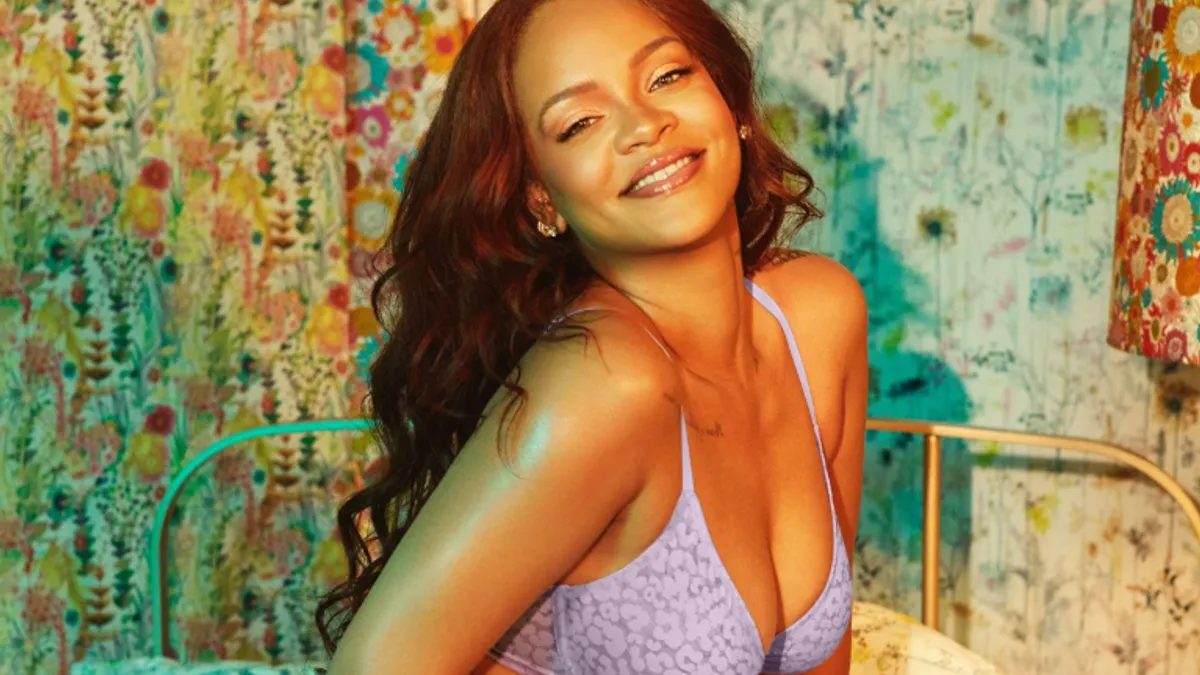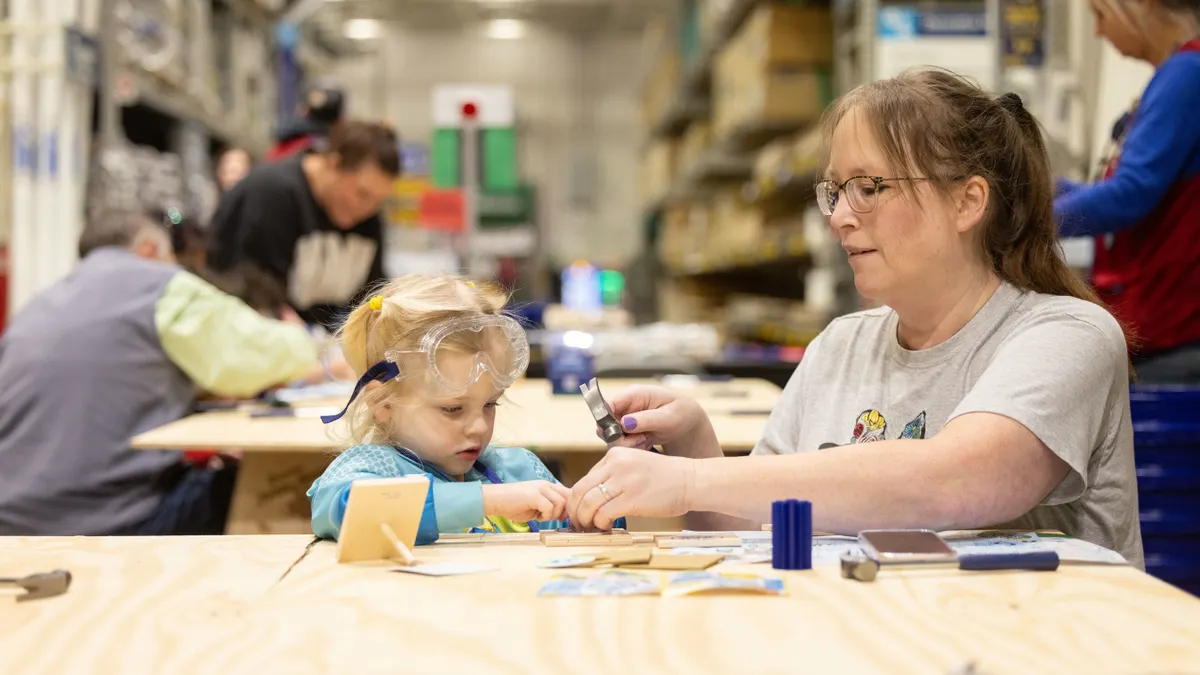Celebrity endorsement deals have always been a way for brands to bring a bold spotlight on a product. But lately the deals seem to be bigger, more strategic and come with some serious financial positioning for the people involved.
Superstars are getting savvy. This means not simply being the face of a product, but banking on their names and business acumen to spin off a company. Instead of needing to land a spokesperson deal, celebrities can simply launch their own product or company and sell directly to their own fanbase. Rihanna in particular this year showed that her status could carry an entire fashion house — and make history in the process.
While businesses may be used to competing with other stores in their niche, the celebrity retailer is becoming a force to be reckoned with. They have name recognition, financial power and — not to be underplayed — social media followings that give them a direct line to their potential customers.
Here are a few pop culture figures who made big moves in retail this year:
Rihanna continues to disrupt everything
It's been the year of Rihanna.
In May, LVMH Moët Hennessy Louis Vuitton partnered with the international superstar to create a new fashion house named Fenty, making Rihanna both the first woman to create an original brand and the first woman of color to launch a fashion house with the conglomerate.
Then she turned the lingerie world upside down. Her Savage x Fenty brand's New York Fashion Week show was made available to Amazon Prime subscribers. The resulting show received overwhelming acclaim, with people making broad claims about how the brand was in the midst of reinventing the concept of the lingerie show — a spot once ruled by retail rival Victoria's Secret. While Victoria's Secret's future appears rocky at best, the lingerie market is in the middle of a massive awakening that aims to accept a wide variety of body types, races and genders, with Savage x Fenty playing a key part.
Most recently, the Fenty Beauty brand launched a flagship store on Alibaba's Tmall Global, where it sells over 200 products as part of a larger expansion into Asia.
Outside of retail, Rihanna is prospering, too. She was just named the world's richest female musician, although much of her fortune comes from her partnership with LVMH, according to Forbes.
Snoop Dogg becomes a minor investor in Klarna
Retailers are becoming more creative when it comes to frictionless payment options, particularly with consumers paying in installments.
European fintech company Klarna has been making moves in retail by offering buy now, pay later services to 170,000 merchants in 17 countries. Fast-fashion retailer H&M a little over a year ago invested $20 million in the business and companies including Rue21, Toms and Asos have followed suit.
What was completely unexpected, though, was Snoop Dogg becoming a shareholder in the company. He also became the spokesperson of the company's "Get Smooth" marketing campaign, in which he was named "Smooth Dogg."
"I've been looking for an opportunity to expand my tech investment portfolio to Europe and seeing the way Klarna operates and how they challenge the status quo, I think it's a match made in heaven," Snoop Dogg said in a statement at the time.
Klarna CEO Sebastian Siemiatkowski said of the partnership, "Snoop is not only a rap legend, but also a successful businessman, with a genuine interest in tech, retail and e-commerce."
Lady Gaga launches beauty on Amazon
While Amazon has been pushing further into the beauty space, its primary beauty coup this year came in the form of Lady Gaga. Hype around July's Prime Day culminated in the reveal that beauty products from the singer's new company, Haus Laboratories, could be pre-ordered during the annual sales event.
The tie-up was strategic on Amazon's part, which also this year announced Amazon Professional Beauty, an e-commerce offering for stylists, barbers and estheticians where users must provide a professional license prior to being able to shop the platform. It's a move that positions Amazon in direct competition with Sally Beauty and Ulta as a solution for busy professionals.
Shoppers can currently purchase a variety of eye and lip products (and a Face Masque Armor Sticker) ranging in price from $16 to $49 on both Amazon and HausLabs.com. "We want you to love yourself, and it is our mission to spread kindness, bravery, and creativity by providing tools for self-expression and reinvention," the company says in a statement about its mission.
Amazon was recently named as a top online destination for purchasing beauty products in a study by Stella Rising, with Ulta and Sephora tied at second place.
Kim Kardashian takes over shapewear
Kim Kardashian's play into the shapewear market got off to a rocky start. In July, she revealed via social media that she was launching a new undergarment collection, dubbed Kimono Solutionwear. The product line was to have items in sizes XXS to 4XL and come in nine different shades, thus appealing to a broad range of races and body types.
The name, however, didn't go over so well.
Backlash came quickly, with many people stating that the name kimono was appropriated from Japanese culture. It even drew ire from the mayor of Kyoto, Japan, who implored her to rethink the company name. After a quick retreat, Kardashian decided to change the brand to be called Skims Solutionwear. The shapewear brand sold out within minutes of its September launch, landing around $2 million in sales, according to Women's Wear Daily. The company has since announced its second loungewear line, the Cotton Collection, which went on sale on Tuesday.
In addition to her shapewear venture, Kardashian is also involved in a joint project to sell secondhand apparel. The company, Kardashian Kloset, allows shoppers to purchase items directly from the wardrobes of both the Kardashian and the Jenner families. The move may prove to be particularly lucrative. Resale has grown 21 times faster than the retail apparel market over the past few years, and it is forecast that the segment will reach $51 billion by 2023.
Gwenyth Paltrow quietly expands her empire
Despite continuing controversy, Gwyneth Paltrow's Goop lifestyle brand is rapidly expanding in multiple industries, including in the retail space.
The company has three permanent shops (its Lab shops are in L.A., New York City and London), has been experimenting with pop-ups and now has beauty and wellness products in over 40 locations across the U.S., Canada, and the U.K. Recent reports have indicated that the company is spreading to other locations, too. The San Francisco Chronicle announced that a Lab boutique was opening in November and a goop pop-up launched in September in Nashville.
This summer, Goop partnered with Mastercard and Next Retail Concepts on an "immersive" e-commerce concept in Canada, per a Mastercard press release. The platformed allowed shoppers to virtually navigate through a 3D version of Toronto's goop MRKT concept in order to "interact with their favorite goop products, and engage with digital content."
Earlier this year, Variety discovered that Goop landed a docu-series deal with Netflix that will focus on physical and spiritual wellness. Goop also will be producing a podcast in partnership with Delta Air Lines.
























